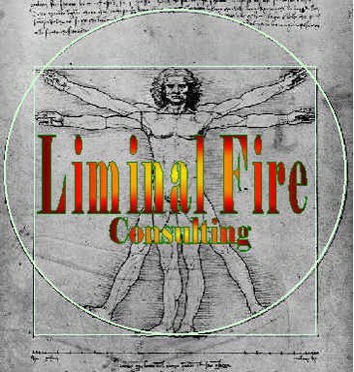Continuation of Executive Development
Traditional Executive Development

"Great leaders are not always perfect communicators! Rather, in the mist of heated interactions, they know when they are not being effective, why and what to do next."
Stages of Executive Development
Introduction:
Relationship model & how we were hardwired. Understand the powerful effect our behavior has on other's productivity
These sessions will show a construct that uncovers & uses Core Intentional Language to generate communication options in difficult interpersonal conversations, allowing you success with a wider range of significant people. Together we will explore why we run out of options and how we can reconstruct & regenerate relationships that have broken down.
Bottom line: Success in all areas of life begin by understanding the effect of your behavior on others and the consequences of that hard wired behavior.
We all have a number of specific conversations that we dread. It may be with a spouse, child, family member, neighbor, boss, peer or employee. We know the conversation is in trouble because of the tone of voice, gestures and words used. We have been down this road before. The results are always predictable & uncomfortable. We have reached a conversation threshold that does not get resolved with continued interaction regardless of our intentions.
In the following exercise we will identify conversations that start out well, but in a short time predictably deteriorate from bad to worse. Their defining mark is that they leave us with a distinct residue.
Residue is that feeling in our bodies that is like a pressure, an ache or heaviness. It stays with us long after the conversation has ended & acts as a reminder that things did not go as intended. Residue drains our energy reserves. We, in effect, carry the other person on our backs to the next encounter, again repeating the same unproductive conversation. Residue most often occurs when we interact with specific people, who behave in a specific way, around a particular topic or concern.
Exercise:
1) Think of 5 conversations where you are unable to achieve the results you want with your:
- Husband, wife, child, in-law, or friend.
- Boss, peer, employee, vender, or customer.
- Neighbor, clerk, attendant, service person or authority.
2) Write down each persons name and a short phrase that describes the conversation that seems to have no resolution.
3) In two columns write a negative and positive behavior list. These are behaviors you actually know this person displays. What behaviors most irritate you? What behaviors does the person bring to the relationship which are value add? Write 5 for each person.
When acting according to how we feel, there is a sense of being in control & of being right. However, if the conversation deteriorates from bad to worse, continuing the interaction may not give us the result we intended. The solution is to use behavior that is outside or the opposite of the one that did not work.
“Outside of normal behavior” is defined as behavior that is contrary to how we feel, or acting the opposite way from the behavior that is not working.
Traditional Executive Development Programs
Traditional executive development programs are valuable foundations for both individuals and groups. They provide knowledge about our management styles, preferences, decision-making skills, tactics for various business scenarios and leadership.
However, after the assessments, theories, role-play and skills training, why does the relationship anomaly still make our relationships difficult? Why do the following questions continue to come up shortly after management training programs attended over the years?
· “Why do we continue to be in conflict with specific people, when our intention is to be productive and communicate with all effectively?
· Why do we still have such strong people preferences? Preferences that may not help us be the best for our families or businesses? Preferences that make those not selected feel excluded?
· Why do we continue to be fixated on and react to certain behaviors?”
· Why are we still agitated or traumatized by what our spouse, children or co-workers say to or about us in times of discord?
· Why does a spouse, child or co-workers behavior still make us go ballistic at times?”
The reality is that traditional executive development programs, although they can contribute to an accurate description of our personalities, management and leadership styles, keep us unconscious of the demands, power and control held by our hardwiring. Control so great that it will do damage to the lives of those we care about and to ourselves, because it gives us no other options when under stress.
Control that was created by us to protect ourselves when young, now results in keeping us from knowing our
original pain
. The original pain of what it was like as a child to be made to repress our personal-feelings in favor of our caretaker’s feelings. We were ignored, abused, shamed or frightened at times, so that we would comply with our caretaker’s sense of “normal.” Our original pain is protected by our hypersensitivity to specific behaviors in others. It places our focus on others behavior to as a way to distract us from the original cause of our pain.
On the other hand, this way of being conditioned is a normal part of growing up. The reference to “damage” points to conditioning that leaves physical and emotional scares. These scars have life-long effect on our decision-making, relationships and vocations. It could even be argued that, for some of us, these scares have contributed to our success in life. However, we only have to put a magnifying glass on our current personal and professional relationships to reveal signs of early childhood conditioning. One easy starting point to understand these is to look at our strong preferences for friends, food, cars, sports, jobs, politics and reading material.
Copyright © 2020 Scott Taylor Consulting All Rights Reserved.